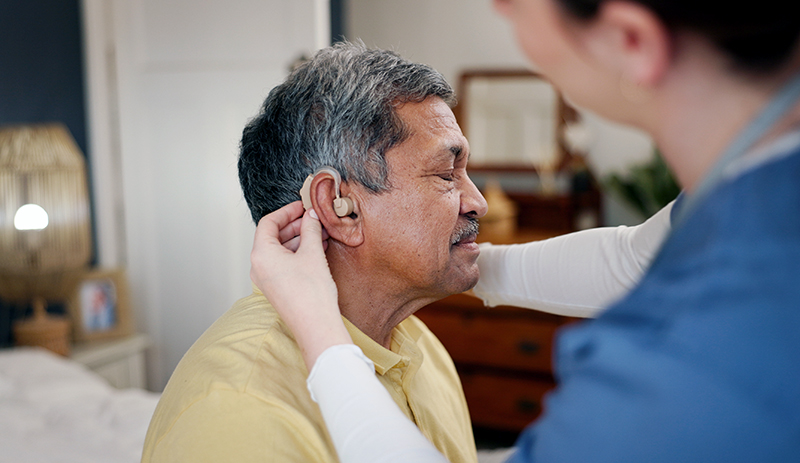The ears are essential to daily functioning and neurological health, facilitating awareness and effective communication. Continue reading to explore six important insights regarding hearing loss that you may not know.
What You May Not Know About Hearing Loss
Anyone Can Be Affected By Hearing Loss
Hearing loss is often associated with older adults, but it can impact individuals of any age. Age-related hearing loss often arises from changes within the ear, but several additional factors can contribute to this condition. These include the use of certain medications and the presence of medical ailments such as high blood pressure, kidney disease, and diabetes. It is crucial to identify these influences to better understand and address hearing loss in the broader population.
Hearing Loss is Prevalent
Hearing loss is a noteworthy public health matter, affecting approximately 48 million Americans aged 12 and older. It currently ranks as the third most common chronic health condition in the United States, with the number of cases on the rise.
Don’t Ignore The Symptoms of Hearing Loss
While sudden or severe hearing loss is typically straightforward to identify, mild to moderate gradual hearing loss may be more nuanced and easily missed. The following symptoms could be an indicator of hearing loss:
• Chronic ear pain
• Repeatedly mishearing conversations and asking people to repeat themselves
• Experiencing tinnitus (ringing in the ears)
• Having dizziness or balance issues
• Difficulty hearing high-pitched sounds
• Experiencing feelings of fluid or pressure in the ears
• Avoiding social settings due to difficulty hearing
We recommend scheduling a hearing assessment if you are experiencing any of these symptoms. Should hearing loss be identified, an ENT will provide appropriate treatment tailored to your condition’s specific cause and severity.
Sound Damage is a Leading Cause of Hearing Loss
Sound pollution has become a substantial concern in urban areas, with sources such as airports, construction activities, heavy traffic, and crowded venues contributing to elevated noise levels. Every day, sounds from earbuds, blenders, lawnmowers, and leaf blowers also play a role, even if they seem moderate. Protracted exposure to loud noises can cause hearing damage, with higher volumes resulting in more rapid damage. Reducing exposure to loud environments is crucial for protecting hearing and preventing noise-induced hearing loss.
Treatment is Essential
Early intervention in hearing loss is crucial for optimal outcomes and preventing long-term damage. If left untreated, hearing loss can lead to auditory deprivation, where the brain struggles to process sounds due to a lack of stimulation. As sound signals decline, the brain’s ability to perceive sound may diminish, making future treatment more challenging. Therefore, promptly addressing hearing loss is essential to mitigate the risks of auditory deprivation and maintain overall auditory health.
Annual Hearing Tests are Vital
Hearing loss often occurs gradually and subtly, making it easy to overlook. The ability to hear may decline slowly over time, and by the time individuals become aware of the issue, their hearing may already be significantly impaired. For this reason, it is imperative to schedule annual hearing examinations for those at risk. These assessments enable audiologists to detect changes in hearing early before they substantially affect daily activities. By identifying hearing loss through regular evaluations, audiologists can take timely measures to prevent or slow further deterioration, thereby helping to preserve an individual’s hearing health.
It is essential to remain vigilant about hearing health, as hearing loss can develop gradually and go unnoticed. Scheduling an annual hearing examination can help detect and manage any hearing loss in a timely manner, thereby safeguarding your auditory well-being.





